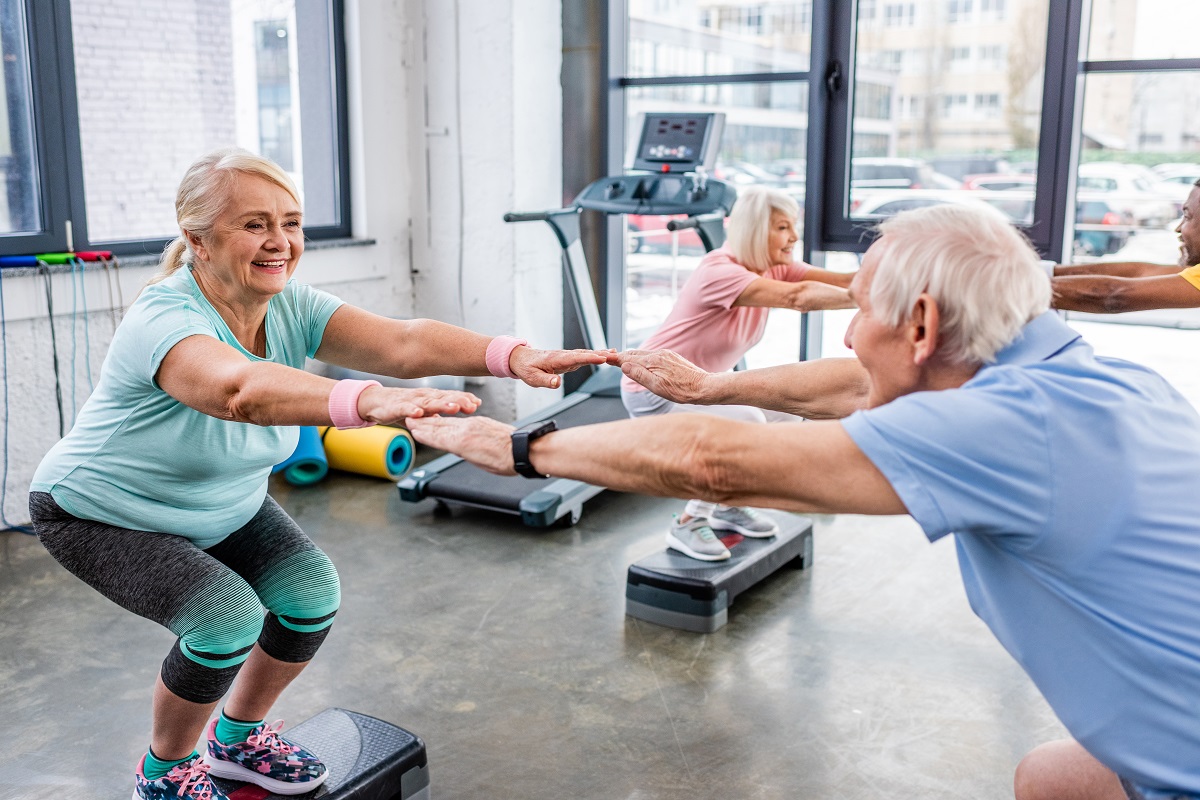After age 50, adults tend to lose muscle mass. Studies has shown that older adults, even someone who is 80, can stop muscle loss and build muscle by lifting weights, doing other exercises that increase strength, and proper diet. The more weight a person lifts, the greater the muscle growth.
While losing muscle mass naturally occurs as you age, it can be prevented or reversed. Especially in older people, weight training helps build not just muscle but motivation and confidence as well. According to a recent study, it’s further linked to a lower risk of death.
Why Does Muscle Loss Occur?
It’s not only bone density that decreases with age. Per researchers, you can have up to 40% muscle loss between your 20s and 80s.
Sarcopenia is the medical term for age-related muscle mass, strength, and functional decline. It’s caused by an imbalance in signals that dictate the growth and teardown of muscle cells. Risk factors include lack of physical activity and poor, unbalanced diet.
Severe stress and inflammation also help accelerate muscle loss.
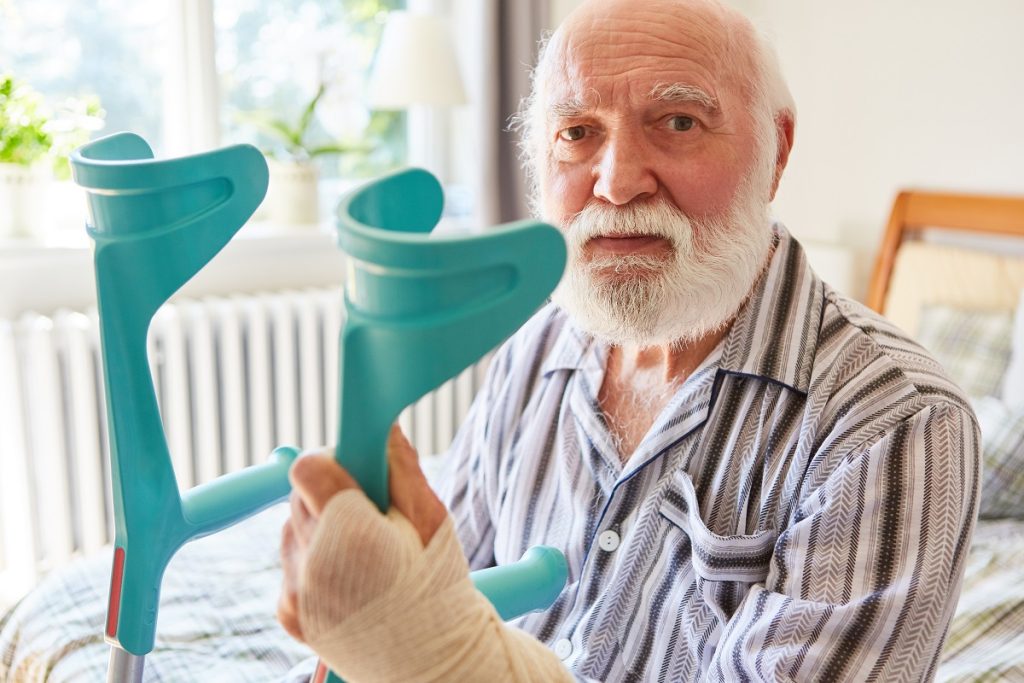
Sarcopenia and osteoporosis (thinning of framework inside your bones) can increase your likelihood of developing frailty syndrome. This syndrome happens when people — particularly older adults — experience a decline in physiological functioning, causing limited mobility and a decreased quality of life.
Can You Regain Muscle At Old Age?
The good news for the elderly is that muscle can still be regained. And to build muscle mass in old age, the key lies in exercising.
A good training program for seniors combines the following:
- Aerobic exercises (improves endurance and cardiovascular health)
- Strength training (increases muscle strength)
- Flexibility exercises (enhances range of motion)
- Balance exercises (promotes body balance and reduces the risk of falls)
How To Build Muscle After Age 80
As of 2021, there are around 12.3 million American adults aged 80 and above. These people live past the average life expectancy in the country, which is 76 years old.
Many wonder if you can still rebuild muscle at such an age. The short answer to this is “yes.” Among other forms of exercise, older adults will increase their muscle mass and strength through strength or resistance training.
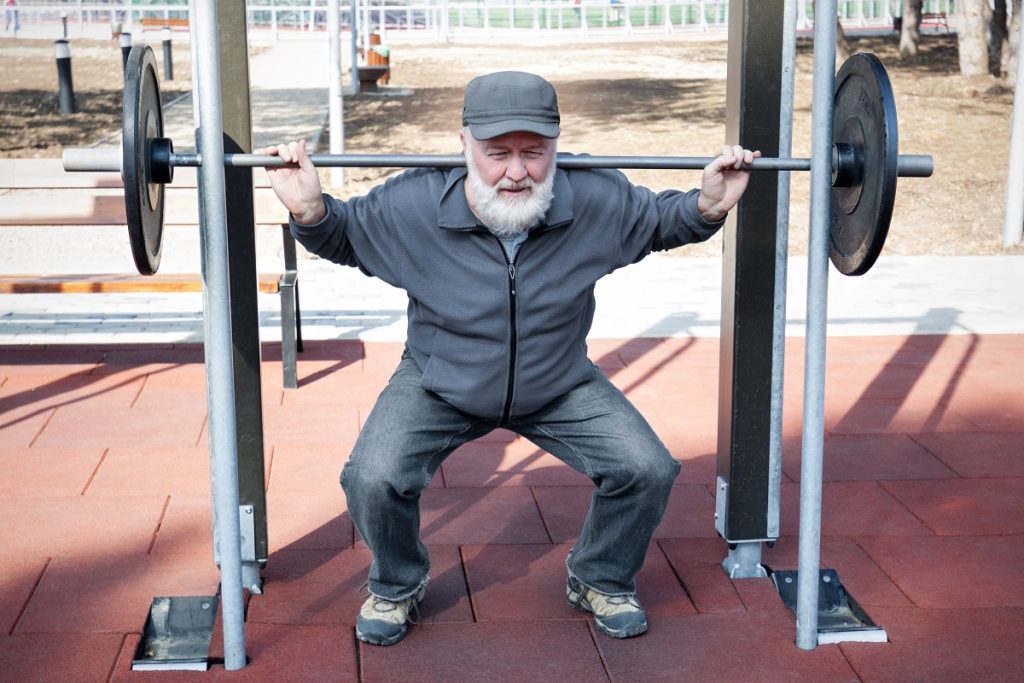
What Is The Best Exercise For 80-Year-Olds?
For 80-year-olds and beyond, progressive strength training is the best type of exercise that will help you achieve a fitter, stronger body. Below are some muscle-strengthening activities you and other fellow seniors can perform:
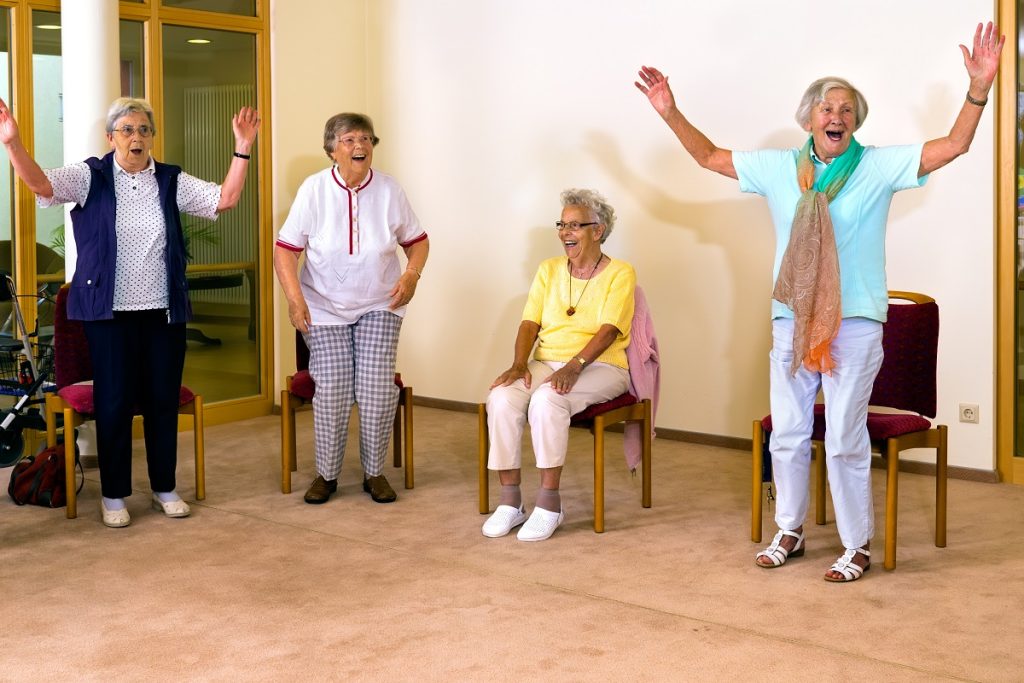
1. Sit to stand
Use a chair high enough to let you rise without using your hands. Sit on it, stand up, and sit down again. The recommended number of repetitions is ten.
2. T-rows
Resistance bands are exercise tools that make strength activities more effective. In this exercise, you must sit upright in a chair, hold a band, and stretch your arms to the right and left until the band forms a horizontal line and touches the center of your breastbone. Return your arms to your front and repeat the exercise 10 times.
3. Basic Squats
Stand with your feet, observing a hip’s worth of distance. Bend your knees and extend your buttocks backward while placing your weight in your heels and keeping your arms out in front. Slowly rise.
4. Wall push-ups
Stand three feet from a wall, with your feet shoulder-width apart. Place your hands on the wall and ensure that they’re aligned with your shoulder. Keep your spine straight, gently lower your body toward the wall, and push back. The recommended reps are ten times.
5. Shoulder Presses
Put your hands up toward your shoulders. Raise them as far as possible and bring them back to your starting position. You can do this without holding anything or with water bottles.

Are There Any Benefits To Lifting Weights At An Old Age?
Weightlifting improves the connections between your nerves and muscles, according to research. And even if you’re already in your senior years, you can still enjoy this benefit.
When doing lifting exercises, choose a weight that’s heavy enough (you’ll know it’s too heavy for you if you need to arch your back when lifting). Apart from shoulder presses, do overhead and chest presses, arm curls, and triceps extensions to strengthen your upper body. Do shoulder squats and forward lunges to enhance your lower body muscle groups.
Apart from muscle growth, the key benefits of this resistance exercise include the following:
- Better endurance and aerobic conditioning
- Improved bone density and joint health
- Greater balance and stability, helping you prevent falls
- Enhanced control over your body weight
- Better cholesterol control
- Improved overall independence and quality of life
How Often Should An 80-Year-Old Lift Weights?
The recommended frequency of exercises that increase body strength — including lifting weights — is twice a week.
This should be combined with at least 150 minutes of moderate-intensity activity (like walking) or 75 minutes of vigorous-intensity activity (like running or hiking) weekly. You should also perform balance training activities thrice a week.
What Are Some Tips For 80-Year-Olds To Build Muscle?
Already in your ’80s? Here are tips to help you increase your muscle strength:
1. Define Your Goals And Set Expectations
Note that it will take longer before you can build muscle when you’re older than when you’re younger. Hence, you must be realistic about your goals and give it enough time before you experience the benefits. You can start by doing simple strength exercises that even beginners can do at home.
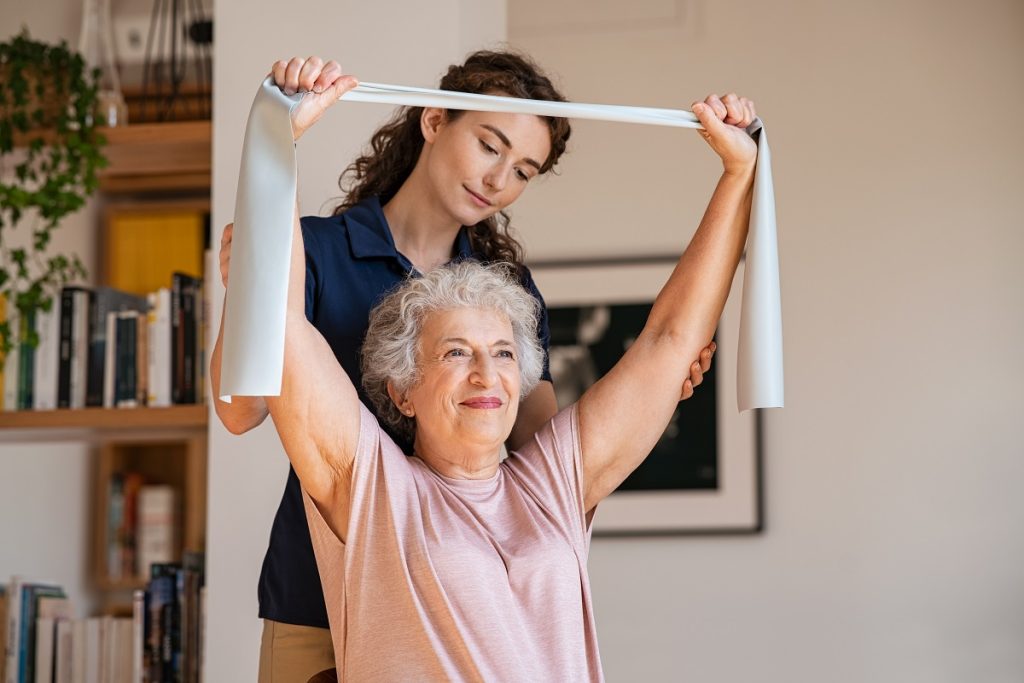
2. Enlist Help From The Pros
Apart from consulting your physician, enlisting the help of a personal trainer can help you continually build your strength and make the necessary adjustments or progressions.
3. Keep Things Fun
Stay motivated by exercising with peers. One way you can do this is by enrolling in an exercise program with a fitness buddy. It will help you perform your exercises better while having the opportune time to socialize.
4. Take Care Of Your Mental Wellness
Researchers found that low muscle mass is linked to poor mental health. While exercise is essential, taking breaks and getting plenty of rest and sleep are also important. Also, take part in activities that promote mindfulness.
5. Eat And Drink Healthily
Having a balanced diet doesn’t just aid in weight loss. As you grow older, being mindful of what you consume also helps dictate muscular strength.

What Else Does A 80-Year Old Need To Get Strong Beside Exercise?
Seniors shouldn’t solely depend on regular exercise. Taking your overall health into account, consult with a dietician to learn more about how your nutritional plan should look.
Generally speaking, your diet should contain sarcopenia-combatting nutrients, including:
- Protein (good sources of protein include lean meats, eggs, and beans)
- Omega-3 fatty acids (fish, avocados, and broccoli)
- Vitamin D (fish, egg yolks, cheese, beef liver, fortified milk)
Eating adequate amounts of carbohydrates is also essential because they fuel your muscles. You can source this from whole grains.
Because bone strength works together with muscles to improve your mobility, it’s also vital to get enough calcium (sources include milk, cheese, and yogurt). Taking supplements will also help you get all the needed minerals and vitamins as you age.
In the process of doing all this, you can also lower your risk of developing chronic conditions, such as high blood pressure, diabetes, and coronary heart disease.
How Can You Build Muscle After Age 80?
Regaining and building muscle mass even after age 80 is possible. You can improve your lean muscle tissue at any age through challenging, progressive, yet realistically doable strength exercises.
Combined with a proper diet, veering away from a sedentary lifestyle will prevent or reverse muscle loss and enhance your well-being in general.

